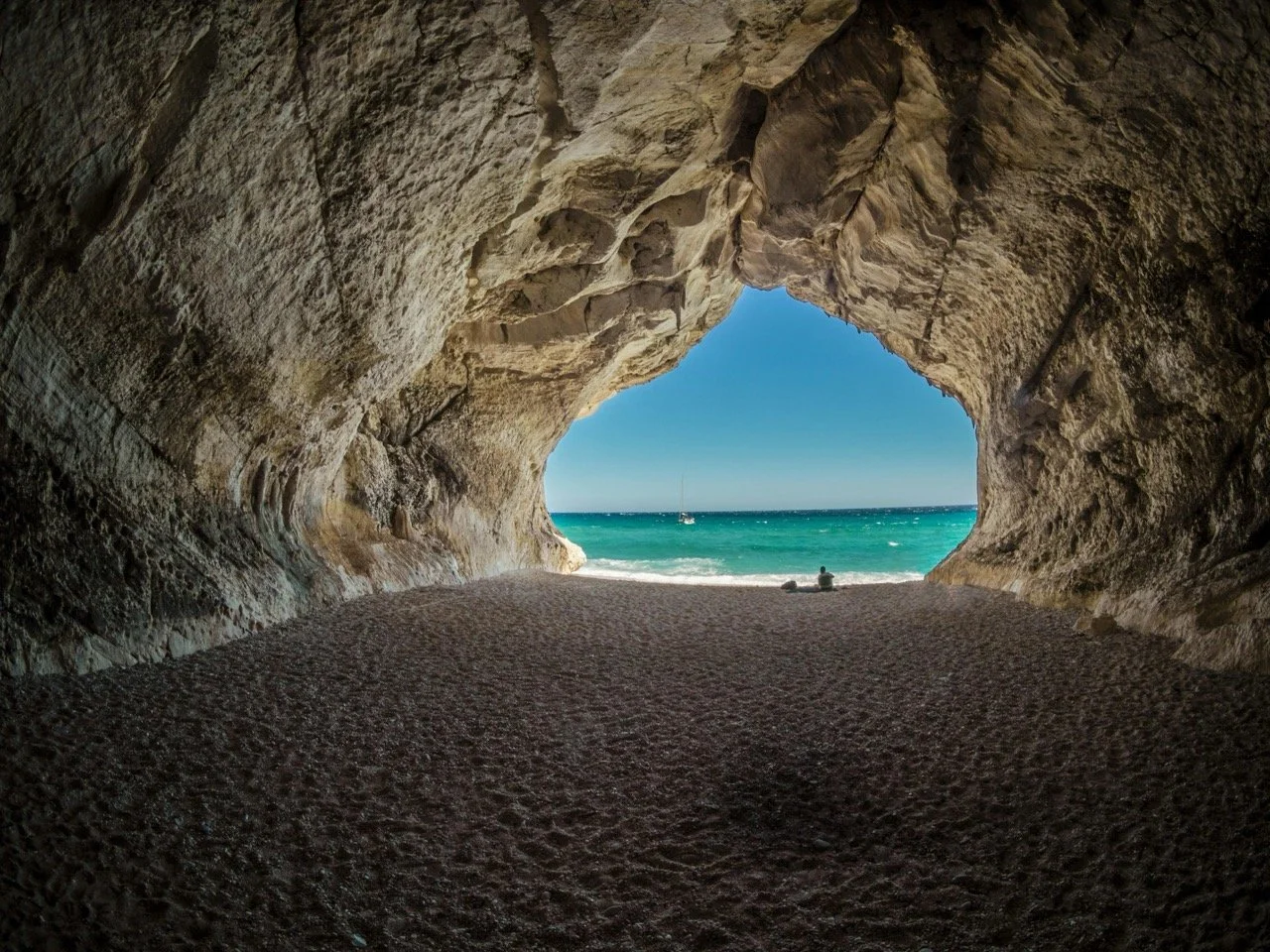How to Start a Travel Agency From Home in 2026
Starting a travel agency from home has never been more accessible or exciting! With 72% of travel advisors now working as home-based independent professionals, you're joining a thriving community that's reshaping how people plan and book their dream vacations.
You could be passionate about luxury getaways, family adventures, or exotic destinations, our guide will walk you through every step of launching your successful home-based travel agency!
The best part? You can literally start booking dream vacations for people from your kitchen table with just a laptop and an internet connection. Most successful travel agents get started for somewhere between $2,000 and $5,000, making it one of the most affordable business ventures compared to traditional brick-and-mortar operations!
Be sure to check out our $99 Starter Membership here at MainStreet Travel! Become a Travel Agent today and start your new exciting career from home!
Why Now Is the Perfect Time to Start Your Home-Based Travel Agency
The travel industry is experiencing unprecedented growth, with projections reaching $1.9 trillion by 2026. Despite the rise of online booking platforms, travelers increasingly value the personalized touch and expertise that only a dedicated travel advisor can provide. People don't just want to book trips—they want to be part of a like-minded community that shares their passion for travel.
Modern technology makes it possible to run your entire business from anywhere—your couch, your local coffee shop, or even while checking out the latest resorts in Jamaica. All you need is reliable internet and the determination to succeed.
Step 1: Find Your Travel Niche and Define Your Specialty
Before diving into the business setup, you need to find your unique niche. This isn't just helpful—it's essential for standing out in today's competitive market. Your niche becomes the foundation of your brand, helps create your agency name, and allows you to focus your energies effectively!
Popular Travel Agency Niches Include:
Destination-Focused Specialties:
European adventures and cultural tours
Caribbean all-inclusive resorts
Hawaiian island hopping
African safaris and wildlife tours
Asian cultural experiences
Travel Type Specializations:
Luxury and high-end travel experiences
Adventure and outdoor tourism
Family-friendly vacation planning
Destination weddings and honeymoons
Corporate and business travel management
Senior and accessible travel options
Medical and wellness tourism
Unique Market Segments:
Solo female travel experiences
Multi-generational family trips
Eco-friendly and sustainable tourism
Food and wine tours
Sports and event travel
Educational and volunteer travel
Your niche should align with your personal interests, travel experiences, and natural expertise. If you've always been the friend who plans amazing group trips, maybe group travel is your calling. If you're obsessed with finding the perfect honeymoon spots, destination weddings could be your specialty.
Step 2: Create Your Comprehensive Business Plan
A solid business plan isn't just paperwork—it's your roadmap to success. This document forces you to think through each different area of your business and develop concrete strategies. While you may not stick to it 100%, it gives you something to refer back to and helps organize your thoughts as you grow.
Essential Components of Your Travel Agency Business Plan:
Executive Summary
Your agency's mission and vision
Target market identification
Unique value proposition
Financial projections overview
Market Analysis
Industry trends and opportunities
Competitor analysis in your niche
Target customer demographics and preferences
Market size and growth potential
Service Offerings
Specific travel services you'll provide
Pricing strategy and commission structure
Package development and customization options
Additional revenue streams (planning fees, consultation services)
Marketing and Sales Strategy
Brand positioning and messaging
Digital marketing approach
Client acquisition strategies
Partnership and networking plans
Financial Projections
Startup costs and funding requirements
Revenue forecasts and break-even analysis
Operating expenses and cash flow projections
Growth milestones and expansion plans
Many host agencies provide business plan templates specifically for travel agents, making this process much more manageable. Take advantage of these resources to create a professional, comprehensive plan that sets you up for long-term success!
Step 3: Choose Your Business Structure and Handle Legal Requirements
Selecting the right business structure is crucial for your agency's legal protection, tax obligations, and operational flexibility. The good news? You can change your business structure as your needs evolve, so don't let this decision paralyze you.
Common Business Structure Options:
Sole Proprietorship
Simplest and least expensive option
Complete control over business decisions
Personal liability for all business debts
Income reported on personal tax returns
Best for: Solo agents just starting out
Limited Liability Company (LLC)
Personal asset protection from business liabilities
Flexible tax options and structures
More credibility with clients and suppliers
Slightly higher setup and maintenance costs
Best for: Agents planning to grow and scale
S Corporation
Advanced option for higher-earning agencies
Potential tax savings on self-employment taxes
More complex reporting requirements
Best for: Established agents with significant revenue
Legal and Licensing Requirements
Most states don't require special licenses to operate as a travel agent, but some have specific requirements:
Seller of Travel License Requirements:
California: Required if selling to CA residents, $250+ annual fee
Florida: $300 annual fee plus $25,000 surety bond
Hawaii: Registration with trust account requirement
Washington: $222 annual fee through Department of Revenue
Federal Requirements:
Employer Identification Number (EIN) from the IRS (free)
Business registration with your state ($50-$500)
General business license if required by your city/county
Professional Certifications to Consider:
Travel Agent Proficiency (TAP) Test: $247
Certified Travel Associate (CTA): $450 complete course
IATA accreditation: $247 for credibility boost
Step 4: Determine Your Startup Costs and Financing Strategy
Understanding your financial investment is crucial for making informed decisions about your business model. Home-based travel agencies represent the most affordable entry point, but you still need adequate funding to operate professionally.
Realistic Startup Cost Breakdown:
Minimum Investment (Basic Home Setup): $1,500-$3,000
Host agency fees: $200-$500 setup, $30-$100 monthly
Basic technology: $500-$1,000 (laptop, phone, printer)
Initial marketing: $300-$500
Business registration and licenses: $200-$800
Errors & omissions insurance: $500-$1,500 annually
Average Investment (Professional Setup): $3,000-$7,000
Enhanced host agency package: $500-$2,000
Professional website development: $1,000-$3,000
Advanced booking software: $500-$1,500
Comprehensive marketing budget: $1,000-$2,000
Professional training and certifications: $500-$1,000
Premium Investment (Full-Scale Operation): $7,000-$15,000+
Franchise opportunities: $299-$9,000 initial
Comprehensive technology stack: $2,000-$5,000
Professional branding and marketing materials: $2,000-$5,000
Extensive training and FAM trips: $1,500-$3,000
Working capital reserve: $3,000-$8,000
Ongoing Monthly Expenses to Budget:
Host agency fees: $20-$100
Software subscriptions: $50-$200
Marketing and advertising: $200-$1,000
Professional development: $50-$200
Insurance and licenses: $50-$150
The key insight? Most successful travel agents begin with minimal investment and reinvest as they grow. You don't need to start with the premium package—focus on professionalism and client service first.
Step 5: Partner with a Host Agency vs. Going Independent
This decision significantly impacts your startup costs, ongoing expenses, and daily operations. For 99% of new travel agents, partnering with a host agency is the recommended path.
Benefits of Working with a Host Agency:
Access to Essential Infrastructure:
IATA accreditation number for earning commissions
Established supplier relationships and higher commission rates
Professional booking systems and technology platforms
Errors and omissions insurance coverage
Legal compliance and seller of travel registrations
Training and Support:
Comprehensive industry education programs
Ongoing supplier training and updates
Access to familiarization (FAM) trips
Marketing resources and templates
Mentorship from experienced agents
Financial Advantages:
Higher commission splits (typically 70-90% to you)
No need for expensive IATA bonds or accreditation fees
Access to volume discounts and consortia rates
Reduced administrative overhead
Popular Host Agency Options:
MainStreet Travel
Free membership or 1-time $99 fee for Plus membership
70/30 commission split
Comprehensive training program
Strong luxury hotel partnerships
Yeti Travel
Free and One Time fee memberships
Friendly support
Extensive marketing resources
Focus on cruise travel
Travel Planners International
$240-$840 annual commitment
No monthly fees on some programs
Focus on building your brand
Strong financial backing
Step 6: Set Up Your Home Office and Technology Stack
Creating a professional workspace is essential for productivity and client confidence. You don't need a dedicated room, but you do need organized, reliable systems.
Essential Technology Requirements:
Core Equipment:
Reliable computer with backup system
High-speed internet connection (essential!)
Professional phone line or VoIP system
Quality printer/scanner for documents
Secure filing system for client information
Software and Platforms:
Customer Relationship Management (CRM) system
Travel booking platforms provided by host agency
Communication tools (email, video conferencing)
Accounting software for expense tracking
Social media management tools
Professional Website Essentials:
Mobile-responsive design (68% of travel traffic is mobile)
Clear service descriptions and pricing
Client testimonials and success stories
Easy contact and booking forms
SEO optimization for local search
Secure payment processing if accepting fees
Home Office Setup Tips:
Create Professional Boundaries:
Designate specific work hours
Set up proper lighting for video calls
Minimize household distractions during client calls
Invest in noise-canceling headphones if needed
Organization Systems:
Client file management system
Travel document templates
Emergency contact procedures
Backup systems for all critical data
Step 7: Develop Your Brand and Marketing Strategy
Your brand is how clients perceive and remember your agency. In a crowded market, strong branding helps you stand out and attract your ideal customers.
Building Your Travel Agency Brand:
Brand Identity Elements:
Memorable business name (keep it simple and spell-able)
Professional logo and color scheme
Consistent messaging across all platforms
Clear value proposition and unique selling points
Professional photography and imagery
Digital Marketing Essentials:
Search Engine Optimization (SEO):
Target local keywords: "travel agent near me," "city vacation planner"
Long-tail keywords: "luxury honeymoon planner in location"
Content creation: destination guides, travel tips, client stories
Google Business Profile optimization
Online review management
Social Media Strategy:
Instagram: Visual destination content and client experiences
Facebook: Community building and travel inspiration
LinkedIn: Professional networking and corporate travel
TikTok: Behind-the-scenes content and travel tips
YouTube: Destination videos and planning tutorials
Content Marketing Approaches:
Travel blog with SEO-optimized articles
Email newsletters with travel deals and tips
Client success stories and testimonials
Educational content about travel planning
Seasonal travel guides and destination spotlights
Traditional Marketing That Still Works:
Networking at local business events
Partnerships with wedding planners, corporate offices
Referral programs for existing clients
Community involvement and sponsorships
Print materials for local distribution
Step 8: Client Acquisition and Relationship Management
Getting your first clients is often the biggest challenge for new travel agents. The key is starting with your existing network and gradually expanding your reach.
Effective Client Acquisition Strategies:
Start with Your Personal Network:
Friends and family as first clients
Former colleagues and business contacts
Social media connections
Alumni networks and community groups
Religious or hobby-based organizations
Digital Lead Generation:
Optimized website with clear calls-to-action
Social media engagement and community building
Online travel forums and group participation
Google Ads targeting local travel searches
Content marketing to demonstrate expertise
Networking and Partnerships:
Local business referral partnerships
Wedding vendor collaborations
Corporate travel account development
Travel blogger and influencer relationships
Industry event participation
Client Relationship Management:
Essential Questions for New Clients:
Travel dates and destination preferences
Budget range and payment timeline
Group size and traveler demographics
Previous travel experiences and preferences
Special occasions or celebration purposes
Accommodation preferences and standards
Activity interests and mobility considerations
Dietary restrictions or accessibility needs
Service Excellence Strategies:
Detailed travel questionnaires for personalization
Regular communication throughout planning process
24/7 emergency support during travel
Post-trip follow-up and feedback collection
Loyalty programs and repeat client incentives
Step 9: Understand Your Income Potential and Financial Management
Setting realistic income expectations is crucial for long-term success and motivation. Travel agent earnings vary dramatically based on experience, niche, and business approach.
Realistic First-Year Income Expectations:
Part-Time Agents (10-20 hours/week):
Typical earnings: $5,000-$15,000 annually
Average per booking: $440 commission
Monthly bookings needed: 2-4 to supplement income
Full-Time Beginner Agents (First 3-5 years):
Average earnings: $44,127 annually
Commission range: 7-20% depending on travel type
Growth potential: $66,000-$79,000 with experience
Experienced Agents (5+ years):
Top performers: $100,000+ annually
Luxury specialists: Often exceed $150,000
Commission rates: Higher tiers with volume bonuses
Commission Rates by Travel Type:
Hotels: 5-12% (luxury properties often higher)
Cruises: 10-20% with volume incentives
Tours and Packages: 10%+ with cooperative marketing
Travel Insurance: Up to 40% for premium policies
Planning Fees: $250+ per week of travel planned
Financial Management Best Practices:
Separate business and personal accounts immediately
Track all business expenses for tax deductions
Set aside 25-30% of income for taxes
Build emergency fund for slow periods
Reinvest profits into business growth and education
Step 10: Avoid Common Startup Mistakes
Learning from others' experiences can save you time, money, and frustration. Here are the most common mistakes new travel agents make and how to avoid them!
Critical Mistakes to Avoid:
Poor Initial Setup and Research:
Joining MLM-style "opportunities" that focus on recruiting
Not vetting host agencies thoroughly before committing
Falling for unrealistic income promises
Skipping professional training and education
Inadequate Business Planning:
Underestimating startup costs and timeline to profitability
Not defining a clear niche or target market
Mixing personal and business finances
Ignoring legal requirements and proper licensing
Marketing and Client Service Failures:
Trying to DIY everything instead of investing in professional help
Neglecting digital marketing and online presence
Poor customer service and communication
Not asking for client feedback and referrals
Operational Mistakes:
Expecting immediate success and quick profits
Not prioritizing ongoing education and training
Avoiding questions due to fear or ego
Neglecting technology and automation opportunities
Financial Management Errors:
Unrealistic pricing and commission expectations
Poor cash flow planning and budgeting
Not tracking expenses properly for taxes
Failing to build adequate emergency reserves
How to Avoid These Pitfalls:
Do Your Research:
Take free masterclasses before making commitments
Research multiple host agencies and their reputations
Connect with experienced agents for mentorship
Join professional organizations like ASTA
Invest in Education:
Complete comprehensive training programs
Attend industry conferences and events
Participate in supplier education opportunities
Stay current with travel trends and technology
Plan Professionally:
Create detailed business and marketing plans
Set realistic timeline and income expectations
Build adequate financial reserves
Establish professional systems from day one
Building Your Long-Term Success Strategy
Success in the travel industry requires ongoing adaptation and growth. The most successful agents continuously evolve their services and expertise.
Scaling Your Business:
Year One Focus:
Master your booking systems and processes
Build initial client base through personal network
Complete essential training and certifications
Establish professional marketing presence
Years 2-3 Growth:
Expand marketing reach and digital presence
Develop specialized expertise in your niche
Build repeat client base and referral network
Consider additional revenue streams
Long-term Expansion:
Explore additional travel niches or markets
Consider hiring virtual assistants or contractors
Develop group travel and corporate accounts
Create passive income through online courses or products
Industry Trends to Watch:
Sustainable and eco-conscious travel demand
Multi-generational family trip planning
Remote work and "workation" travel
Health and wellness-focused experiences
Technology integration and AI assistance
Continuing Education Opportunities:
Destination specialist certifications
Supplier-specific training programs
Advanced business development courses
Technology and marketing workshops
Industry conference attendance
Frequently Asked Questions
How much does it really cost to start a travel agency from home?
Most successful travel agents get started for $2,000-$5,000, though you can begin with as little as $1,500 for a basic setup. This covers host agency fees, basic technology, initial marketing, business registration, and insurance. The key is starting professionally but scaling your investment as you grow.
Do I need special licenses or certifications to be a travel agent?
No federal license is required, but four states (California, Florida, Hawaii, and Washington) require Seller of Travel licenses if you serve residents there. Professional certifications like TAP or CTA aren't mandatory but add credibility and knowledge. Most successful agents work through host agencies that handle legal compliance.
How much money can I realistically make as a home-based travel agent?
First-year earnings typically range from $5,000-$15,000 for part-time agents and $20,000-$45,000 for full-time beginners. Experienced agents average $66,000-$79,000, with top performers earning $100,000+. Success depends on your niche, marketing efforts, and dedication to client service.
What's the difference between working with a host agency and being independent?
Host agencies provide essential infrastructure (IATA numbers, supplier relationships, training) for 10-30% of your commissions. Independent agencies require $44,000-$155,000 in startup capital plus extensive industry knowledge. 99% of new agents should start with a reputable host agency.
How long does it take to get my first clients?
Most agents book their first trips within 30-90 days by starting with personal networks. Building a sustainable client base typically takes 6-18 months of consistent marketing and networking. The key is providing exceptional service that generates referrals and repeat business.
Can I really run a travel agency from home?
Absolutely! 72% of travel advisors now work from home. Modern technology enables you to handle all client communications, bookings, and business operations remotely. All you need is reliable internet, professional phone service, and organized workspace.
What happens if something goes wrong with my clients' travel?
Host agencies provide 24/7 emergency support and errors & omissions insurance coverage. You'll have access to supplier support teams and established protocols for handling travel disruptions. Professional training teaches you crisis management and client communication skills.
How do I compete with online booking sites like Expedia?
Travel agents provide personalized service, expert knowledge, and exclusive perks that booking sites can't offer. You'll often secure the same prices plus added value like room upgrades, resort credits, and VIP treatment through supplier relationships. Focus on complex itineraries and luxury experiences where your expertise shines.
What if I don't have travel industry experience?
Most successful agents started without industry experience. Host agencies provide comprehensive training covering everything from booking procedures to destination knowledge. Your passion for travel and commitment to learning matter more than previous experience. Many top agents came from completely different careers.
How do I handle the business side like taxes and accounting?
Keep detailed records of all business income and expenses using accounting software. Set aside 25-30% of commissions for taxes and consider quarterly payments. Business expenses like education, marketing, and home office costs are typically deductible. Consult with a tax professional familiar with travel agents for guidance.
Your Journey to Travel Agency Success Starts Now
Starting a home-based travel agency represents an incredible opportunity to turn your passion for travel into a thriving business. With the travel industry continuing to grow and more travelers seeking personalized expertise, there has never been a better time to launch your agency!
Remember that success doesn't happen overnight! The most successful travel agents invest in proper education, choose reputable host agencies, focus on exceptional client service, and maintain realistic expectations about their growth timeline. They understand that building a sustainable business takes time, but the rewards—both financial and personal—make the journey worthwhile!
The travel industry offers unlimited potential for those willing to approach it professionally and strategically. Whether you're dreaming of helping families create magical Disney vacations, planning luxury honeymoons in exotic destinations, or organizing corporate retreats, your expertise and personalized service will always be in demand.
Your adventure in the travel industry begins with a single step. Take that step today, armed with the knowledge and confidence to build something amazing. The world is waiting for the unique experiences and exceptional service that only you can provide!















